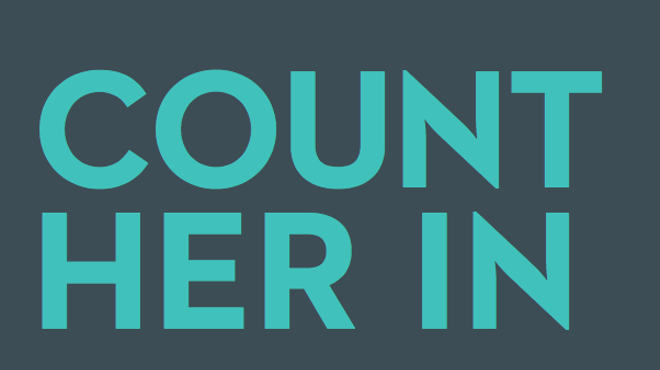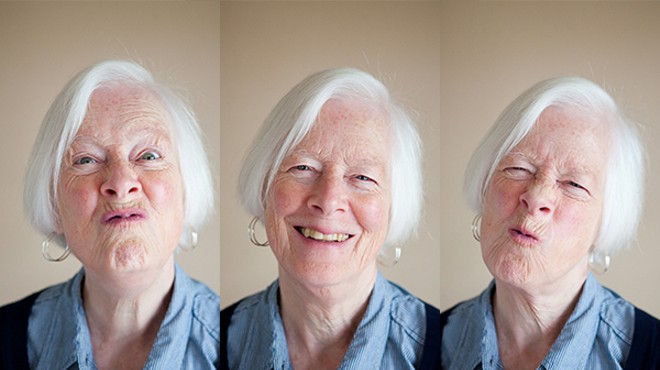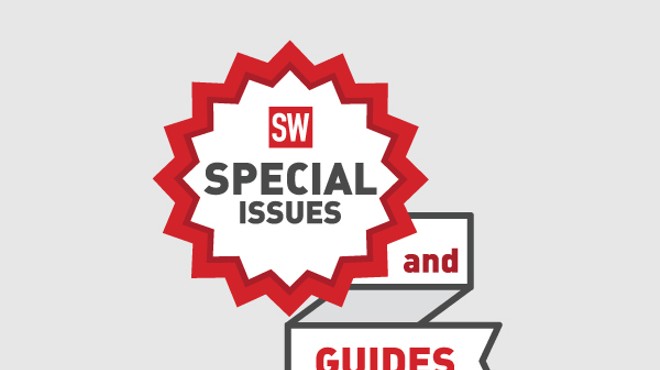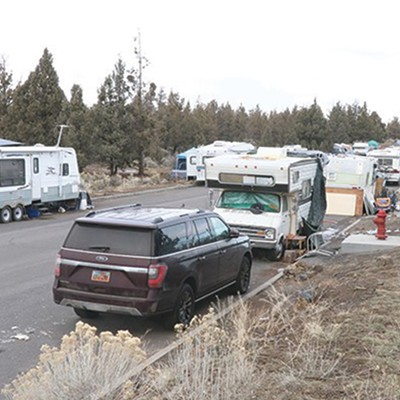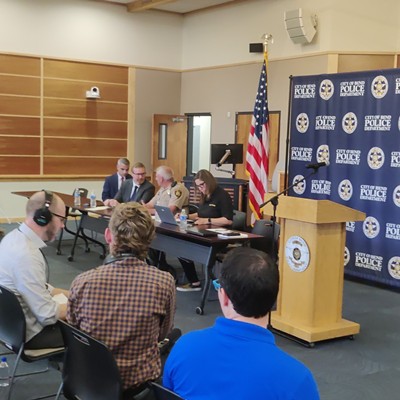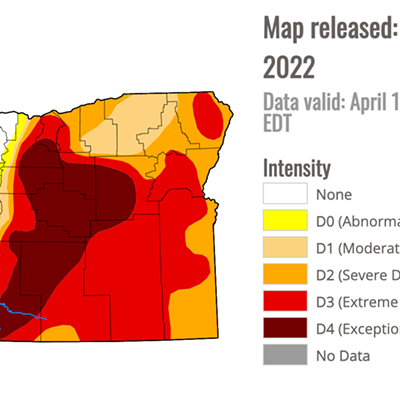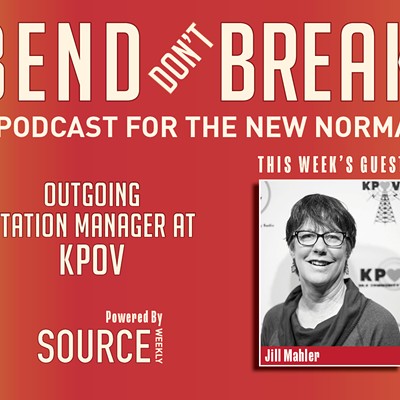Beverly Clarno
Oregon's first female Republican Speaker of the House and (retired) 20-year politician
" But I do believe the men who believe women should be in the kitchen baking cookies are now in the minority."
"I went into politics essentially after seeing the needless and ridiculous restrictions and limitations I saw government put on the little guy. In the early '70s, government officials would come and visit my hog farm in Wasco, Oregon, and they were arrogant, demanding and awful to deal with — and in the rural areas, you're not used to people treating you that way. So I thought, if I could just get into the Legislature, I would try and change it so that we would help people comply with the law.
"I've never thought that anything bad that happened to me was because I was a woman, (laughs) but I have had plenty of trouble with men. What I noticed was men my son's age — the younger generation — treated me with the greatest respect. It was the men, my own age, who I had trouble with. They're not used to dealing with women in the political world. When I was sworn into the Oregon Legislature in 1989, a man my age said, 'I don't know what you're doing here, you should be home in the kitchen, baking some cookies.'
"It's not just a generational thing though, it's more than that. In a way, it is how you were raised and I was always treated equally. I pulled the same weight my brother or husband did on the farm. My first supporters were men from the Cattlemen's Association and Farm Bureau who saw me not as a woman but as a champion for them, back when Central Oregon was more rural.
"But I do believe the men who believe women should be in the kitchen, baking cookies are now in the minority. In my own party, I had problems with a few men who tried to form a mutiny and not vote for me right before the House leadership vote. But the Democratic leader at the time, Peter Courtney, rallied behind me, threw his support and told me personally that the Democrats would support me. That kind of bipartisanship wouldn't happen now. So I think it was easier, in a way, to be a woman in politics 20 years ago because there was more cooperation and collaboration between parties. That's not the case now.
"I wouldn't call myself a feminist, but women provide a good balance in politics, increased enthusiasm and a willingness to change the status quo. I'd be happy to help any woman wanting to run — because we need more women, especially Republican women, to get involved and bring their unique skills to the table."
–As interviewed by Magdalena Bokowa
Amanda Stuermer
World Muse Women's Conference Founder and Director
" Frame your activism as not against something, but for something. It's important to be working towards, not against an issue. It is much easier to rally people for a cause rather than against it."
"Too often, we don't value the insights we gain from our youth. Older women can offer so much experience and wisdom to younger women, but they too can gain from the meaningful dialogue and thoughtfulness younger teens have — if we just provide them with a platform to be heard. It's truly is a mutually beneficial relationship.
"When I was marching among thousands in D.C for the Women's March, I looked around and didn't see the difference between the women, men and different generations there. We were all coming in through different doors — some marching for women's rights, trans rights, environmental rights, immigration, equality, black lives and so on — and even though we walked in through a different door, we all ended up in the same place. We don't all have to carry the same banner. We just have to have the passion and follow through.
"I think it's important to frame your activism as not against something, but for something. It's important to be working towards, not against an issue. It is much easier to rally people for a cause rather than against it. Think positively and be creative. With World Muse, which started out as a leadership program for teens and is now in 10 different schools through Central Oregon and is an annual conference, I learned that the work you do in your local community is incredibly important and ties you to something much bigger. It is absolutely true that your work matters and keeps you connected to a bigger movement.
"Know that your voice matters. If you're privileged, and let's admit that we are in this community, then use your privilege as a vehicle for change. Own it. We need more seats at the table, otherwise we'll just be on the menu."
–As interviewed by Magdalena Bokowa
Judy Stiegler
Democratic State Representative 2009-2011, retired lawyer and political science professor
" When I was going door-to-door campaigning, not so long ago, a gentleman in his 60s politely told me, 'This is not where you belong.'"
"I'm proud to say I was the first woman to practice law in Redmond in the late '70s. The men in my firm playfully referred to me as the "girl lawyer." I was arguing a case while eight months pregnant and the presiding judge — Judge Copenhaver — waved me over and asked for me to approach the bench. He was astounded that I was heavily pregnant and still working. With genuine concern, he told me, 'I don't want to see you until after you've given birth.' I kept working, of course, but I had to get the other lawyers to try any case that was before him. Judge Copenhaver ended up becoming godfather to both of my children.
"We've come a long way since the women's movement and in a way, I think because it's less of a head scratcher and less of a novelty, we've kind of plateaued at the amount of women in politics and in the Legislature. Oregon is the classic dichotomy; in some ways we are progressive, and in some ways we are still behind. I still remember my time at Saving Grace, and how difficult it was helping women get restraining orders against their husbands. Things have changed for the better.
"I came of age in a raucous time — the civil rights movement, women's liberation, anti-war protests, and in a way it's in my DNA to be an active citizen. But being an active citizen is more than just marches and protests, it's about being conscious and funneling your passion into something. Be creative with it, volunteer your time, weather the not-so-exciting times and work hard.
"We are seeing a time where people understand you can't just sit back and not be a part of the whole picture. So go do something. Each person has something to offer. My mother started volunteering at the age of 80. When you're an active part of your community in any shape or form, that's activism."
–As interviewed by Magdalena Bokowa
Melissa Adams
Mental Health Therapist, key organizer of the Bend Women's March
" I really wanted for people, especially newcomers to the area, to know that we do welcome the diversity.
"With all of the rhetoric that we saw during the campaign, the presidential campaign, there was a lot of focus on differences between people, you know, 'some people are good and some people are bad and we want to keep the bad people out, and protect the good people.' And I think that kind of thinking is dangerous, individually and on a societal level, and I know that as our demographics change rapidly in Central Oregon, I know we have more and more people of color moving here, more and more people of different sexual orientation backgrounds and different gender identity backgrounds, and I really wanted for people, especially newcomers to the area, to know that we do welcome the diversity. And it might be difficult, but we do welcome diversity and this is a place where we want everyone to feel accepted and wanted.
"My partner that I do that (a support group for transgender youth & their families) with, what we want to do is educate the youth as well as their families in answering any of their questions. You know there might be neurological differences between transgender people and cisgender— which is the correct terminology
for those of us that don't identify as transgender—and so answering questions, making sure that parents can make informed decisions in supporting their youth and not just react based on what they see in the popular culture that might be confusing to them or concerning to them.
"All of the parents I talk to love their children. They care greatly for their children and their biggest concern is making sure that their children aren't experiencing mental health issues and definitely aren't experiencing suicidal thoughts or behaviors. Or if they are, that those can be talked about and worked through that way. When we are alone with our thoughts, especially our negative thoughts—and that's true even when we self isolate because we feel different, because we feel unaccepted—then we don't have the ability to get a reality-check so to speak and make s
ure that we're thinking correctly."
–As interviewed by Nicole Vulcan
Carina Miller
Tribal Council Representative, Agency District
Confederated Tribes of Warm Springs
" I want young women, specifically, to just be whoever they are."
"Being on council now and looking at the kind of issues that come up, there's stuff right now with the irrigation districts and a lack of water, and environmental issues, all these things. But when you sort it all out and you set aside identity and you set aside the barriers that make us sit on opposite sides of the table and look at each other from that perspective, a lot of times we're fighting for the same thing.
"My mom's white, so I have a white family, I have a native family.... having to learn how to accept and fully embrace different identities was really hard in my family life, so I know it seems impossible to force that on society. It's like... education, we have to teach kids to care about each other. Humanity is still there. It's our job to make safe spaces to tell our stories to each other.
"In a lot of ways... this whole burst of hatred that's in America right now is an eyeopener to a lot of people, who, it probably is their grandfathers, it could be family members, that they're seeing it, and I really do have faith that people are going to choose to be better, and to just be good.
"So much of our history has been hidden, has been pushed out of education because people don't want to be truthful about capitalism and about racism and about money and about the truth of America and every horrible thing it did, but it's finally time that it's all coming out.
"I want young women, specifically, to just be whoever they are. I mean, I think I'm pretty outspoken, I have a face piercing, I have Old English tattoos on my feet, but I think being raised in my culture and not being afraid to go to the longhouse like this, or all these things that is what's really made me be happy and balanced and strong and appropriate, and a lot of what I really like doing is just having these relationships and being part of these collectives and these organizations that are all about talking about our identity and empowering each other, and that's really an individual thing."
–As interviewed by Nicole Vulcan
Camille Sands
Co-organizer of the Nov. 2016 Love Trumps Hate Rally
Student at Lane Community College; Bend High School grad
" If you want to start something, just go and start it—and you have no idea how many people will join you and how many people will believe in what you believe in."
"I was visiting Bend the weekend after the election and I was like, 'Oh, is there anything going on,' and my friend said he didn't know of anything. I asked my friends, 'Do you just want to hold some signs in front of the library or whatever.' I wasn't expecting it to really be anything.
"I actually want to give a lot of the credit to my friend Tom (Wrisley) because he was the one who got in contact with bigger activist leaders in Bend. We ended up being peacekeepers and leading the march and speaking in front of a crowd and that was really great.
"The thing I noticed in Bend is that it has a lot of potential for the activism. With the college opening up, it brings in younger people with different ideas about how they think the world should be run, and I didn't even know that there had never been a protest that big in Bend before.
"I know that there's a lot of people who do want to participate, but they don't know where to go, or who to talk to or how to start. I think that... I don't want to say that the youth should lead the fight because I think it should be a joint effort from all the ages. As we saw from the rally, there was great age diversity. But I do think that the youth have a lot to offer for new ideas like in terms of intersectionality, which I think is something that is really big when talking about including everyone and making sure that everyone has a voice. It's not a new concept, but there's just new discussion as far as race, gender, white supremacy, and how our government works that hasn't always been a discussion that I think the youth can provide.If you want to start something, just go and start it—and you have no idea how many people will join you and how many people will believe in what you believe in. Just put your face out there and try to start something."
–As interviewed by Nicole Vulcan
Moey Newbold
Advocacy Programs Manager & Director of Communications
Central Oregon Landwatch
" I've done some traveling, but I've started to realize it's important to put down roots and care about the community where you are."
"I don't think activist is a negative term, but it sometimes means you're kind of extreme. I've been working in the community for a little more than five years and maybe now I'd consider myself more of an advocate. I was born in Bend and grew up in Tumalo, so Central Oregon is important to me. I've done some traveling, but I've started to realize it's important to put down roots and care about the community where you are.
"I think (land use) is so important because I care about protecting our natural environment. Oregon's land use in particular keeps urban development in urban areas and allows us to protect our natural recourses in rural lands.
"Land Watch has been great because I've been able to take on a lot of different issues. I'm surrounded by people who care about similar things and I think we're really effective. It's inspiring to see Paul (Dewey) and Carol (Macbeth) our two attorneys be so successful.
"We were really involved in the Urban Growth Boundary process and I think that was really collaborative. With Land Watch's input we were able to reduce potential urban sprawl by 70 percent from the original proposal. I think that's super important for Bend's future because it's shaping the city we're going to be 30 years from now.
"Instead of having sprawl and lots of traffic with cars being the only mode of transportation that's feasible, we can have a little bit more walkable, bikeable community and try to have neighborhoods where you can work where you live, have access to services and shops and restaurants. I think the idea of the Urban Growth Boundary and keeping our city more compact is really important for Bend.
"It's always so eyeopening to go to a City Council meeting. You don't have to go for any reason and you don't have to speak. But if you sit in the room and watch things happen you get a better idea of what's going on and then you can take action on things that speak to you. Locally, we have a lot of say over what happens."
–As interviewed by Anne Pick
Megan French
Program Director
Locavore
" Food security means that you can rely on your neighbor for food and to be healthy. It means if we need to feed the whole community, we could."
"I never have used the word activist before, nor did I really think of myself as one, but I kind of am. What it means to me is creating a healthier community. That's why I've taken a hold of local food so much. It's all-encompassing of everything that I find important. Community health, actual physical health, sustainability, environmental consciousness and building relationships with people.
"In my childhood, we always grew food, lived next to farmers. My dad hunted, we fished, we canned and it was more out of necessity than entertainment. I took those things into my adulthood and I see the importance of this and how it can create more accessible food for everybody.
"At Locavore, I've been able to delve into that community, meet everyone, help them and have a purpose. It's introduced me to all different people in the community from the people that are actually producing, to that people I want to get it to, to other businesses that I want to have partnerships and relationships with. Through working with the other businesses, it's opened up new conversations everyday about how we can help each other. It betters Central Oregon food security.
"Food security means that you can rely on your neighbor for food and to be healthy. It means if we need to feed the whole community, we could. I think we still have a long ways to go for that, but demand needs to drive the growth of farms. We can't have all of these farmers growing food and have nobody to buy it. We really need to rely on the eater to grow the amount of food security.
"Change a small percentage of your diet to be local food. Instead of buying strawberries at the store, buy them when they are grown locally. Eat more seasonally. Be more creative in your cooking. Volunteer, help those in need.
"To me, local is all about sharing. There's no reason why we should all have to grow all different varieties. If you can hook up with your neighbor and they'll grow all of the beans and you can grow all of the kale, that's awesome."
–As interviewed by Anne Pick

